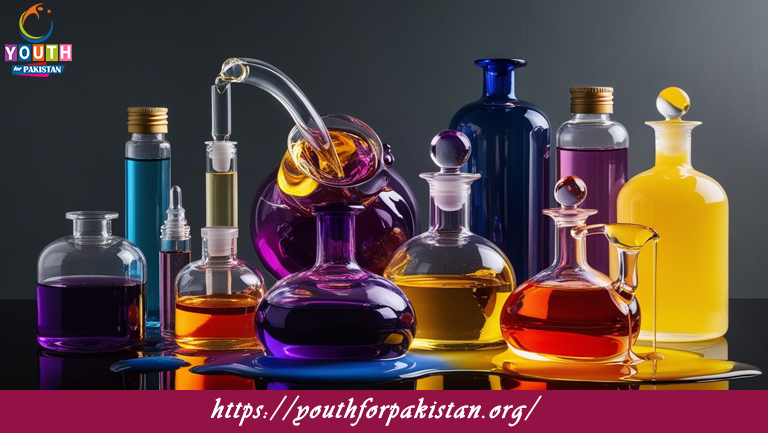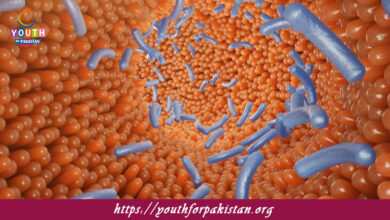Liquids MDCAT MCQs with Answers

Welcome to the Liquids MDCAT MCQs with Answers. In this post, we have shared Liquids Multiple Choice Questions and Answers for PMC MDCAT 2024. Each question in MDCAT Chemistry offers a chance to enhance your knowledge regarding Liquids MCQs in this MDCAT Online Test.
Which of the following is a characteristic property of liquids?
a) Definite shape
b) Definite volume
c) High compressibility
d) High density
What property of liquids allows them to form a meniscus in a glass tube?
a) Viscosity
b) Surface tension
c) Capillarity
d) Density
Which property describes a liquid’s resistance to flow?
a) Surface tension
b) Viscosity
c) Density
d) Cohesion
Which of the following factors does not affect the viscosity of a liquid?
a) Temperature
b) Molecular size
c) Pressure
d) Surface area
The property that allows a liquid to rise in a narrow tube against gravity is called:
a) Viscosity
b) Surface tension
c) Capillarity
d) Fluidity
Which liquid exhibits the highest surface tension at room temperature?
a) Water
b) Mercury
c) Alcohol
d) Acetone
Which property of liquids is described by the temperature at which their vapor pressure equals atmospheric pressure?
a) Freezing point
b) Melting point
c) Boiling point
d) Condensation point
What is the effect of increasing temperature on the vapor pressure of a liquid?
a) It decreases
b) It increases
c) It remains constant
d) It becomes zero
Which of the following factors does not affect the rate of evaporation of a liquid?
a) Temperature
b) Surface area
c) Atmospheric pressure
d) Density
The resistance of a liquid to external force, which causes it to flow, is known as:
a) Surface tension
b) Viscosity
c) Fluidity
d) Cohesion
Which property of a liquid is responsible for its ability to form a meniscus in a capillary tube?
a) Surface tension
b) Viscosity
c) Cohesion
d) Adhesion
Which of the following liquids has the highest density at room temperature?
a) Water
b) Alcohol
c) Mercury
d) Ethanol
The tendency of a liquid to minimize its surface area is due to:
a) Viscosity
b) Surface tension
c) Capillarity
d) Fluidity
Which of the following properties is a measure of a liquid’s internal friction?
a) Surface tension
b) Density
c) Viscosity
d) Capillarity
Which of the following factors increases the rate of evaporation of a liquid?
a) Lowering the temperature
b) Decreasing the surface area
c) Increasing the pressure
d) Increasing the temperature
What phenomenon is responsible for a liquid’s ability to climb up a narrow tube?
a) Surface tension
b) Viscosity
c) Cohesion
d) Capillarity
The ability of a liquid to resist being stretched or deformed is described by its:
a) Viscosity
b) Surface tension
c) Density
d) Fluidity
Which of the following has the lowest viscosity at room temperature?
a) Honey
b) Water
c) Glycerin
d) Syrup
Which liquid would have the lowest vapor pressure at a given temperature?
a) Alcohol
b) Water
c) Mercury
d) Acetone
The process by which a liquid changes into a gas at temperatures below its boiling point is called:
a) Boiling
b) Evaporation
c) Condensation
d) Freezing
Which property of liquids allows them to maintain a definite volume but adapt to the shape of their container?
a) Surface tension
b) Viscosity
c) Fluidity
d) Density
The rise of liquid in a narrow tube is caused by the balance of which two forces?
a) Cohesion and adhesion
b) Viscosity and fluidity
c) Surface tension and density
d) Capillarity and vapor pressure
Which factor does not affect the surface tension of a liquid?
a) Temperature
b) Presence of surfactants
c) Pressure
d) Molecular size
The temperature at which a liquid turns into a solid is called its:
a) Boiling point
b) Freezing point
c) Melting point
d) Condensation point
Which of the following properties describes a liquid’s tendency to resist external deformation?
a) Surface tension
b) Fluidity
c) Cohesion
d) Viscosity
Which of the following substances has the highest capillary rise?
a) Mercury
b) Water
c) Alcohol
d) Glycerin
The property of liquids that allows them to pour easily and spread out is known as:
a) Surface tension
b) Viscosity
c) Fluidity
d) Cohesion
The phenomenon of liquids taking the shape of their container but not expanding to fill it completely is due to their:
a) Viscosity
b) Surface tension
c) Density
d) Fluidity
The temperature at which a liquid’s vapor pressure equals the external pressure is called its:
a) Melting point
b) Boiling point
c) Freezing point
d) Sublimation point
Which factor would decrease the surface tension of a liquid?
a) Increase in temperature
b) Increase in molecular size
c) Addition of a surfactant
d) Increase in pressure
The change in volume of a liquid with temperature is known as:
a) Thermal expansion
b) Surface tension
c) Viscosity
d) Capillarity
Which of the following is an example of a liquid with high viscosity?
a) Water
b) Acetone
c) Olive oil
d) Alcohol
Which property of liquids is described by their ability to form droplets?
a) Surface tension
b) Viscosity
c) Cohesion
d) Capillarity
Which of the following does not influence the vapor pressure of a liquid?
a) Temperature
b) Molecular weight
c) Viscosity
d) Intermolecular forces
Which liquid will have the highest vapor pressure at a given temperature?
a) Water
b) Alcohol
c) Mercury
d) Glycerin
Which property of a liquid is responsible for its meniscus formation in a graduated cylinder?
a) Cohesion
b) Adhesion
c) Surface tension
d) Viscosity
The phenomenon where a liquid spreads out and wets a surface is called:
a) Cohesion
b) Capillarity
c) Adhesion
d) Surface tension
Which factor does not affect the rate of capillary rise in a liquid?
a) Tube diameter
b) Liquid temperature
c) Density of the liquid
d) Pressure applied
Which of the following liquids would exhibit the greatest capillary action?
a) Mercury
b) Glycerin
c) Water
d) Ethanol
The temperature at which a liquid solidifies is known as:
a) Boiling point
b) Melting point
c) Freezing point
d) Sublimation point
If you are interested to enhance your knowledge regarding Physics, Chemistry, Computer, and Biology please click on the link of each category, you will be redirected to dedicated website for each category.




